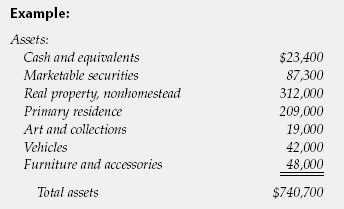Every financial transaction you can imagine comes into the Balance sheer in some form or other. Off-Balance Sheet is very attractive to all companies but. When a company takes out a loan from a bank or a line of credit from a vendor it records a liability for the loan and records the cash received from the financing. For financial institutions to some extent engage in the off-balance sheet activities. Off-balance-sheet financing OBSF Off-balance-sheet financing refers to types of transactions and methods of accounting for transactions in which no liabilities are recorded to an organizations financial statements. For example you purchased goods for your store that you be selling with a margin t. Used to describe assets or debts that a company does not need to show on its balance sheet. Off balance sheet refers to those assets and liabilities not appearing on an entitys balance sheet but which nonetheless effectively belong to the enterprise. What is the difference between balance sheet and off balance sheet. The business activities of a savings association that generally do not involve booking assets loans and taking deposits.
Off-balance sheet financing means a company does not include a liability on its balance sheet. Why Use Off-Balance Sheet Financing. The risk incurred by the financial institutions due to their activities related to the contingent assets and liabilities. For financial institutions to some extent engage in the off-balance sheet activities. The business activities of a savings association that generally do not involve booking assets loans and taking deposits. Used to describe assets or debts that a company does not need to show on its balance sheet. These items are usually associated with the sharing of risk or they are financing transactions. I any obligation under a direct or indirect guarantee or similar arrangement. Off-Balance-Sheet Financing A type of company financing that does not appear as a liability on the companys balance sheet. Off balance sheet refers to those assets and liabilities not appearing on an entitys balance sheet but which nonetheless effectively belong to the enterprise.
The business activities of a savings association that generally do not involve booking assets loans and taking deposits. The risk incurred by the financial institutions due to their activities related to the contingent assets and liabilities. Off-Balance Sheet is very attractive to all companies but. What Does Off-Balance Sheet Financing Mean. Off-balance sheet exposures refer to activities that are effectively assets or liabilities of a company but do not appear on the companys balance sheet. Off balance sheet refers to those assets and liabilities not appearing on an entitys balance sheet but which nonetheless effectively belong to the enterprise. Off-Balance Sheet OBS Also known as Off-Balance sheet items Off-Balance sheet assets or liabilities and Incognito Leverage. The financial obligations that result from OBSF are known as off-balance-sheet liabilities. Off-balance sheet financing means a company does not include a liability on its balance sheet. Off-balance sheet activities normally generate fees but produce liabilities or assets that are deferred or contingent and thus under GAAP do not appear on the institutions balance sheet.
In response to these concerns preparation of an off balance sheet OBS is sometimes used summarizing those assets and liabilities which are not shown on the traditional balance sheet TBS under current generally accepted accounting principles GAAP. Off-Balance Sheet is very attractive to all companies but. Used to describe assets or debts that a company does not need to show on its balance sheet. The business activities of a savings association that generally do not involve booking assets loans and taking deposits. For financial institutions to some extent engage in the off-balance sheet activities. Search for better numbers continues. Ii a retained or contingent interest in assets transferred to an unconsolidated entity. Off-Balance-Sheet Financing A type of company financing that does not appear as a liability on the companys balance sheet. When a company takes out a loan from a bank or a line of credit from a vendor it records a liability for the loan and records the cash received from the financing. Every financial transaction you can imagine comes into the Balance sheer in some form or other.
These traditional sources of financing are always reported on the balance sheet as either a short-term or long-term liability. Ii a retained or contingent interest in assets transferred to an unconsolidated entity. The risk incurred by the financial institutions due to their activities related to the contingent assets and liabilities. Off-balance sheet exposures refer to activities that are effectively assets or liabilities of a company but do not appear on the companys balance sheet. The business activities of a savings association that generally do not involve booking assets loans and taking deposits. Off-Balance Sheet is very attractive to all companies but. When a company takes out a loan from a bank or a line of credit from a vendor it records a liability for the loan and records the cash received from the financing. What is the difference between balance sheet and off balance sheet. For example you purchased goods for your store that you be selling with a margin t. Off Balance Sheet Arrangements means any transaction agreement or other contractual arrangement between the Borrower and an entity that is not consolidated on the Borrowers financial statements under which the Borrower may have.
